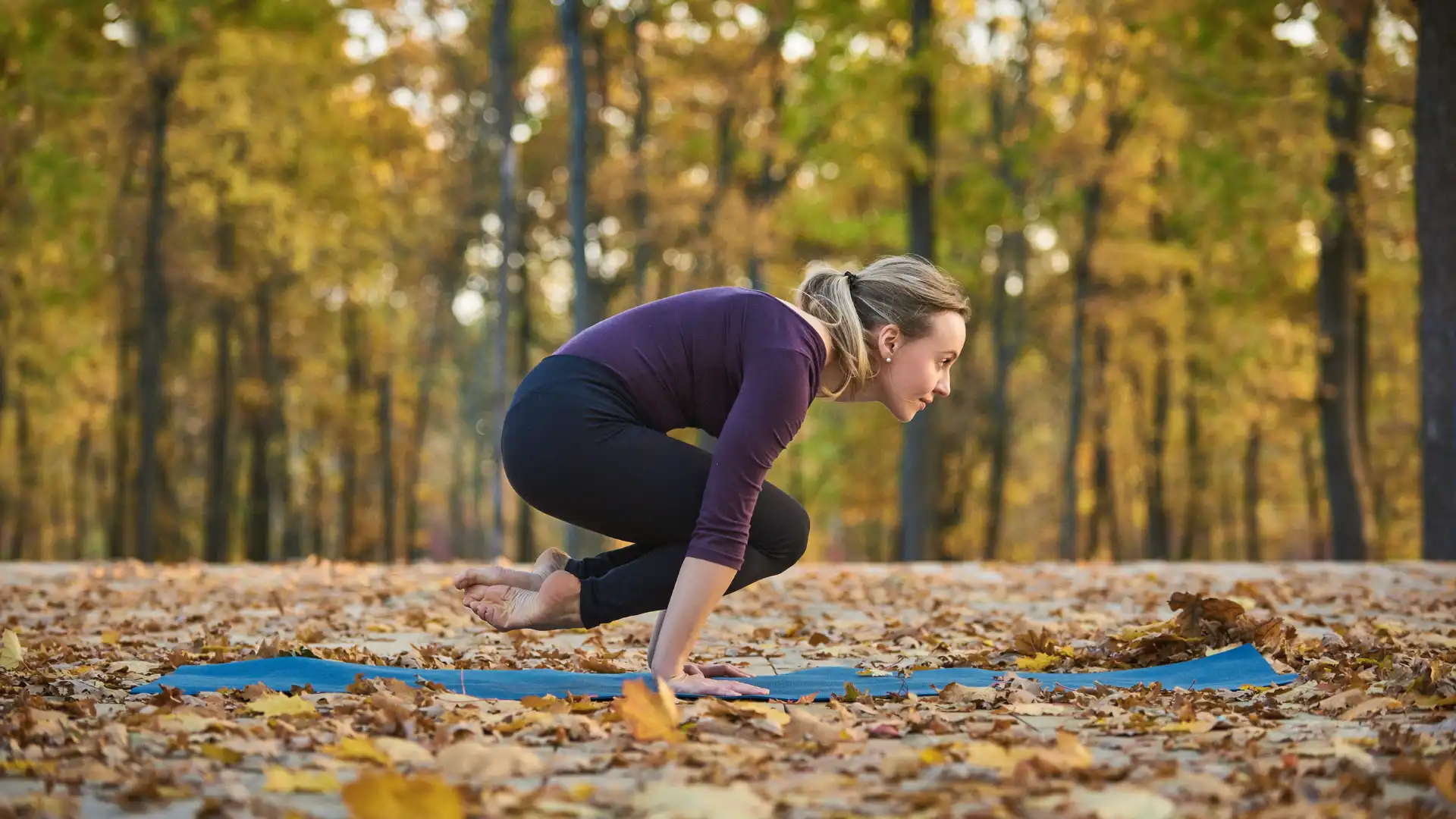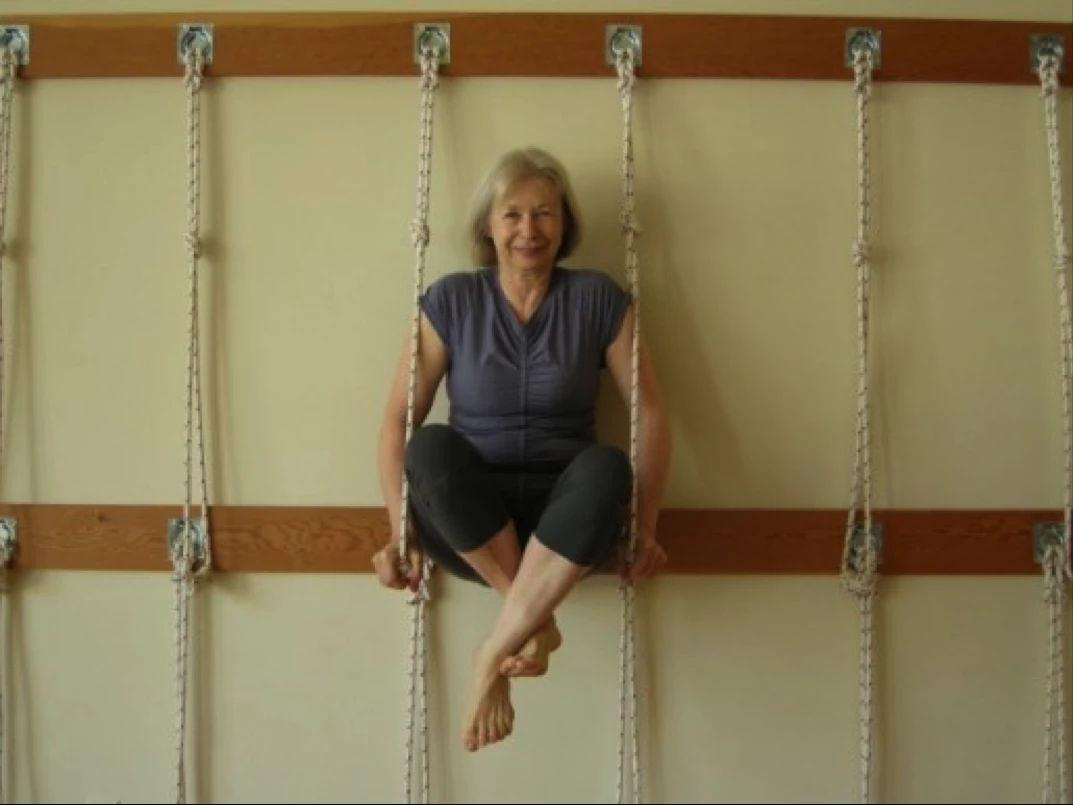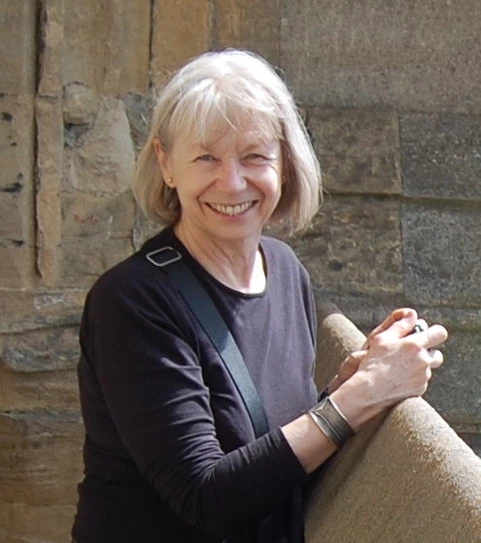Grace and Grit: Conquering the Impossible Yoga Pose

How does the impossible become possible? I don’t know the answer to that. But I do know that in yoga it happens all the time.
Take rope Sukhasana, for example. I first saw it two years ago, in an intensive workshop while preparing for junior Iyengar certification. We had been working on a pose called Lolasana, normally rendered into English as “Pendant” or “Earring” Pose, referencing pendant earrings that sway from a woman’s ear.
To do Lolasana, you press your hands down, and using the strength of your arms, back and core, you lift your legs off the ground and swing them back and forth. This is not an easy pose for me, but it was never impossible.

(Well, it took two years, but now I can do it. And no, I’m not sitting on the wood.)
 Learning Lolasana
Learning Lolasana
The steps for working on Lolasana are clear and accessible. By raising your hands on bricks, stools or even chair seats, you make your arms longer. That gives you a mechanical advantage that lets you work on connecting your legs and your core body. Then as the pose becomes stronger, you can decrease the height you use under your hands.
Shirley Daventry French, a senior-level Canadian teacher who founded the Iyengar Yoga Centre of Victoria, was teaching the intensive. She wanted to demonstrate the power you need in your upper back in the pose. This is the power that comes from creating a rounded back, rather like a bear’s. The difficulty is that most poses ask us to lift our chests, not round our backs.
To help us grasp the movement, she stepped into the ropes, pressed her hands down, floated up, and stayed there, talking about the power of the rounded back.
When it was our turn to sit in the ropes, I couldn’t begin to grasp it. I pressed down and jumped, but my legs dragged me back to earth. I had no way to lift their weight. The pose was closed, and I couldn’t see a door or a gateway anywhere.
 Conquering the Impossible Yoga Pose
Conquering the Impossible Yoga Pose
Fast-forward to June, and my last Sunday class for the spring session. My students had settled into a deep relaxation pose. I was idling, leaning against the wall, between a set of ropes, when the idea of Shirley’s rope trick scampered across my mind. I pressed my hands down over the knots, lifted off the floor, and for a very surprising moment, felt myself inhabit the pose.
I don’t have ropes at home. I hadn’t been faithfully working at it every time I’m in the studio. I hadn’t even worked particularly hard with Lolasana. Yes, I’ve been strengthening the work of my arms in simple poses and keeping my core connected in every pose I do. (see photo above right) But it’s just been practice, no triceps-toning visits to the gym, no grueling schedule of abdominal poses. So what happened?
All I know is that the pose opened. And I don’t really know what this means, but the answer I’m groping toward is “grace.” You do what’s in front of you, the best you can. And something you didn’t know you were working toward becomes possible.
More yoga basics and helpful practice tips from Eve Johnson – Yoga Strap Magic: Use a Long Strap to Put Your Shoulders in Place.
Interested in developing greater interoception? A course from James Knight and YogaUOnline – Developing Interoception: Creating Embodiment Through Somatic Awakening.
Reprinted with permission from Eve Johnson’s myfiveminuteyogapractice.com

Eve Johnson is a certified Iyengar Yoga teacher with 18 years of teaching experience. Since 2016, she has been exploring Spinefulness, a postural system based on the work of Noelle Perez-Christiaens, one of BKS Iyengar’s first western students and the author of Sparks Of Divinity. Eve especially values Spinefulness for the presence and ease it brings to yoga postures and to everyday life. She teaches at Yoga on 7th, in the South Main neighborhood of Vancouver, Canada.


 Conquering the Impossible Yoga Pose
Conquering the Impossible Yoga Pose